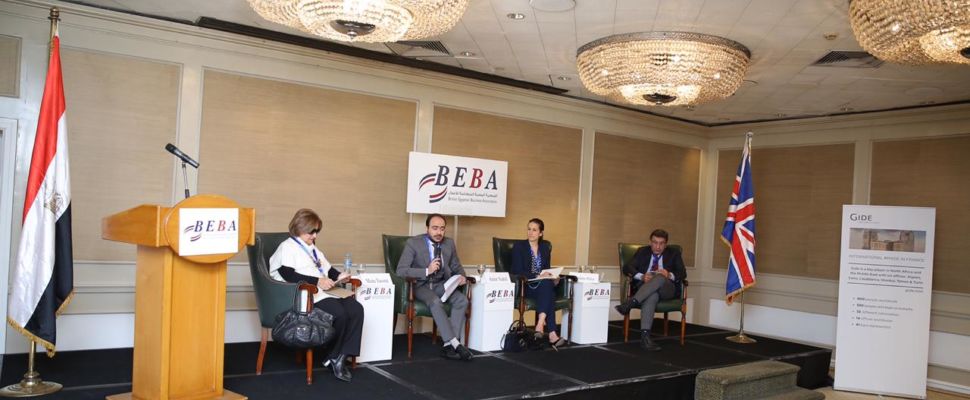On Tuesday, February 12th, Pharmaboardroom attended a breakfast event hosted by the British Egyptian Business Association (BEBA) on competition law at the Cairo Semiramis Intercontinental Hotel. The theme for the event was competition law and its application in the Egyptian market, with the topic being introduced through a speech by Sir Geoffrey Adams, the British Ambassador in Egypt. The event panel was formed of Amir Nabil, chairman of the Egyptian Competition Authority, Segolene Pelsy, partner of the law firm Gide, and Khaled Atef, country president of Egypt and North Africa for AstraZeneca. Mona Yassine, former chairman of the Egyptian Competition Authority, was moderating the event.
Competition law is fairly new in Egypt, having only been introduced in 2005. The Egyptian Competition Authority’s Nabil gave a brief introduction into how the current competition law system is being implemented and how the model of the European Commission has been used as a reference. Throughout the event, Nabil emphasized the importance of the law and how it will be beneficial for businesses by strengthening competition based on merit, as opposed to carrying out anticompetitive practices that inflict harm on Egyptian market enterprises.
As expected, one of the main topics of the event was last year’s record fines worth EP 5.58bn (USD 318mn) handed out to four pharmaceutical companies for illegally unify pricing. AstraZeneca’s Atef highlighted how the unprecedented case had shaken the industry, raised the question amongst companies of what more could be done to be raise awareness of competition law and ensure that businesses are compliant. Gide’s Pelsy gave her input on measures that companies can take in order to avoid violating the competition law as outlined by the European Commission. One option is to create legal divisions within companies, which inform employees and ensure the legal compliancy of the company’s activities. Moreover, she mentioned the importance of having legal units, since authorities take into account the efforts that companies are making to be compliant when reviewing cases.
The panel gave different perspectives on competition law and allowed the audience to learn more about the applicability of it in different business situations, as well as the process that a case goes through. The differences between the law in Egypt and that in other regions such as the EU was also highlighted. The event ended with an open discussion on how to create more awareness and consciousness on competition law, to avoid future fines. It has become clear that competition law is still a topic on which more education, information and awareness-spreading is needed. Hence, events including panel discussions, such as that held by BEBA, can be of great importance for the Egyptian pharmaceutical industry.


